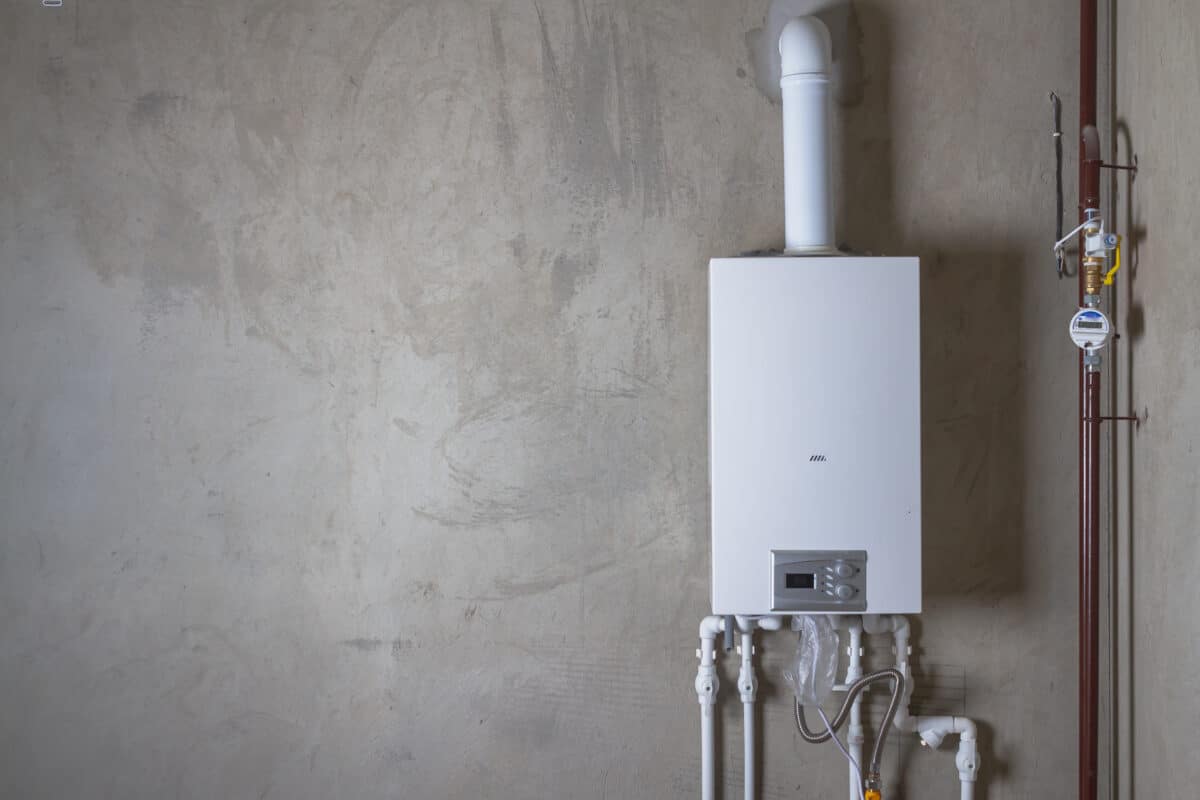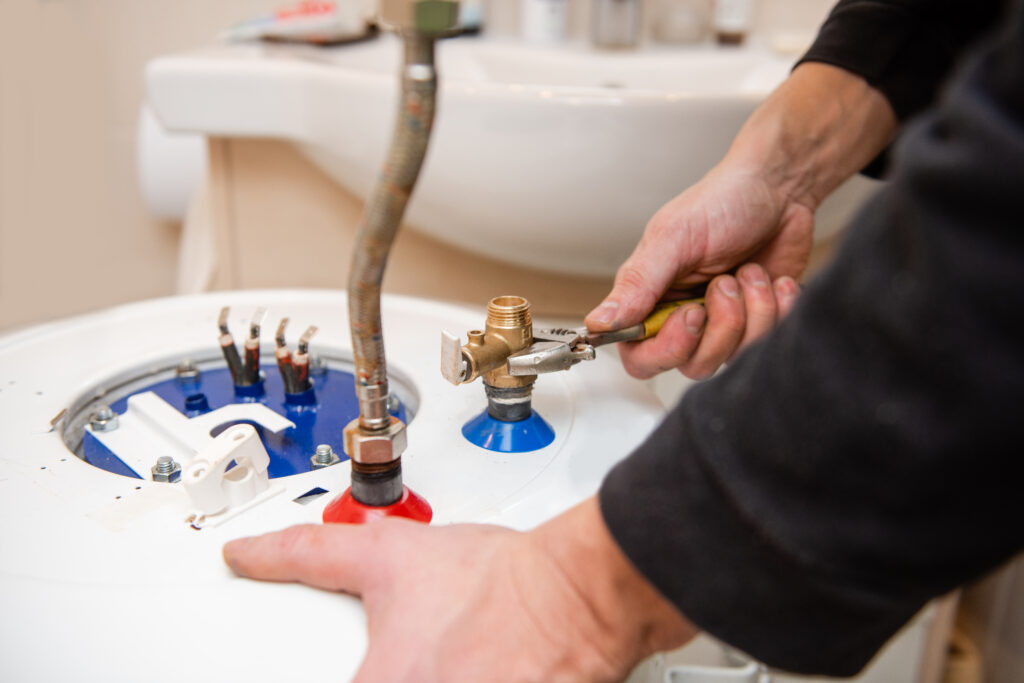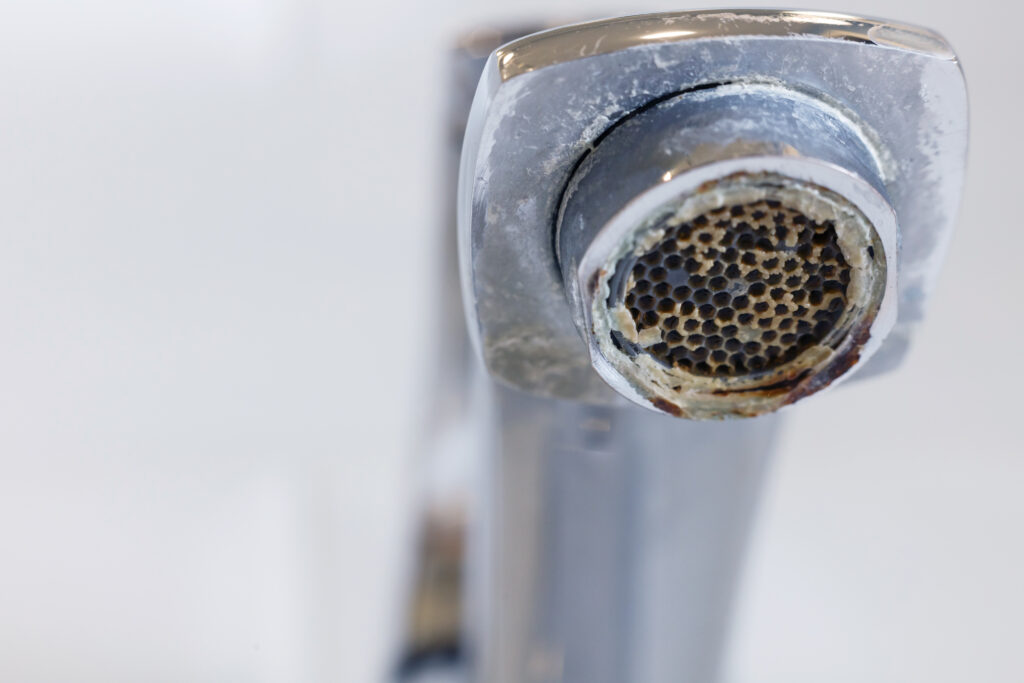Tankless water heaters deliver hot water immediately by directly heating it without a storage tank and present a sleek and efficient alternative to conventional models. Interested in what sets a tankless system apart? This blog post will guide you through the essentials of tankless water heaters, spotlighting their major advantages and discussing important considerations to keep in mind before making the switch to this modern solution in your home.
What is a Tankless Water Heater?
A tankless water heater, also referred to as an on-demand or instantaneous water heater, is a system that heats water directly without the need for a storage tank. When a hot water tap is turned on in your home, cold water travels through a pipe into this unit. The water is then heated instantly via an electric element or a gas burner. This process delivers a constant supply of hot water, getting rid of the need to wait for a storage tank to fill up with enough hot water.
It’s important to note that the output of a tankless water heater is limited by flow rate, meaning it can only heat a certain volume of water at a time. These systems allow for greater energy efficiency and space-saving benefits compared to traditional water heaters, which constantly heat a large tank of water regardless of the needs of the house.
Pros and Cons of Tankless Water Heaters:
While many benefits come with choosing a tankless water heater, there are some limitations to consider. Below, we have listed some pros and cons so you can be better informed before making a decision.
Pros:
- Energy Efficiency: Tankless water heaters only heat water when it’s needed, reducing energy consumption by up to 34% vs traditional models with storage tanks.
- Space Savings: Due to their compact size, tankless heaters can be installed in smaller areas, freeing up space in your home.
- Continuous Hot Water Supply: These systems provide an endless supply of hot water, making it a great choice for households with high usage.
- Longevity: Tankless water heaters typically have a longer lifespan compared to traditional water heaters, typically 15-20 years.
- Improved Water Quality: Without a storage tank, there is less risk of rust and scale buildup, which can improve water quality.
Cons:
- Higher Initial Cost: Tankless water heaters are more expensive than tank heaters, with average costs ranging from $1,000 to $3,000.
- Complex Installation: Retrofitting a home for a tankless system can be complex and might require additional expenses, such as upgrading electrical systems or adding ventilation for gas models.
- Limited Output: Some tankless models may struggle to supply enough hot water for multiple uses, which can be a limitation for larger households. If the demand for hot water exceeds the heater’s flow rate, you might experience a drop in water temperature.
- Water Softener Addition: It is highly recommended to install a water softener with a tankless water heater. This is because the heating coils flash heat the water, and the minerals in the water can cause corrosion or calcification of the heating element. Without a water softener, this can lead to heating system failure within a few years.
Are Tankless Water Heaters Worth It?
When considering the switch to a tankless water heater, it’s important to weigh the initial cost against the long-term benefits.
The upfront cost of a tankless water heater can be high. However, the long-term savings on energy bills and the extended lifespan of the system can be well worth it for certain households.
Your household size and hot water usage habits are important factors when considering a tankless water heater. A traditional tank water heater might be a better fit if you have a big family with high hot water demand. However, there are ways to reduce your hot water consumption.
The climate you live in will also have an effect on your decision. In colder areas, tankless units might struggle to keep up with demand due to lower incoming water temperatures. You might need extra or bigger units to ensure enough hot water supply.
Ultimately, the decision to switch to a tankless water heater depends on your specific needs and budget. If you’re willing to invest in the upfront cost for long-term savings and energy efficiency, then it might be worth it. Be sure to consult with a professional plumber or contractor to determine which type of water heater is best suited for your household.
The Tankless Water Heater We Recommend
With the variety of tankless water heater options on the market, it’s important to consider quality and reliability. Our preferred model is the Noritz EZ111. This specific tankless water heater comes with a 25-year warranty, providing peace of mind to homeowners.
This system is not only designed to be more efficient in its natural gas usage, but it also qualifies for energy-efficiency rebates. For example, the federal government and Dominion Energy offer rebates, saving you around $900. Plus, it is designed to be more efficient in its natural gas usage compared to traditional tank water heaters, translating into noticeable monthly savings for you.
The Noritz EZ111 can also connect to an app, providing a user-friendly interface for wireless remote control of water heater functions. Users can easily adjust temperature settings, set timers, and receive diagnostic and maintenance reminders.
Considerations Before Switching to Tankless:
A tankless water heater could be a great addition to your home. It can save you space, money, and headaches in the long run. However, it’s important to consider the pros and cons listed in this article to make sure it’s a good fit for your particular situation. If you have a large household with high hot water demand, it may be more beneficial to stick with a traditional tank water heater.
Additionally, the initial cost of purchasing and installing a tankless water heater may be higher than a traditional tank system. Factor in your budget and long-term plan before making the decision to switch.
Reach out to Nearby Plumbing to determine the best water heating option for your home. They can assess your hot water needs, evaluate the feasibility of installing a tankless system, and provide valuable cost-saving advice.
Tankless Water Heater Installation with Nearby Plumbing
Whether you’re building a new home or upgrading your current system, a tankless water heater could be the key to both comfort and cost savings. As mentioned, the move to a tankless water heater can offer a variety of benefits, ranging from energy efficiency and space savings to improved water quality and longevity. If you’re ready to explore these benefits for yourself, contact us today and get a free quote. Our goal is to find you the water heater that fits your needs at a price that fits your budget.





